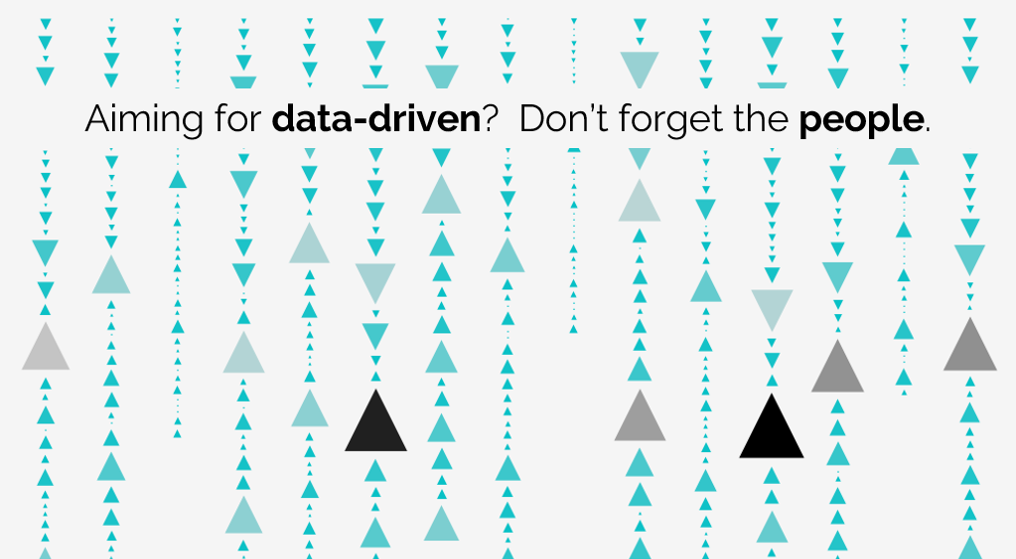I’ve been in this situation too much recently: I’m having a conversation with someone about the state of analytics and there’s a sudden turn to product feature comparison. What follows are a series of strengths and weaknesses bulletpoints. The kicker? Often the points are focused on what the tool can do, or how the tool fits into a technology stack, or (inevitably) the cost of the tool.
What’s left out? How it works with people. How the tool you’re selecting is going to be affected by existing culture, or more importantly, what your future-state analytics culture will look like.
Feature comparisons put machines before people. Feature comparisons assume that the needs of the machines supersede the needs of your team. Feature comparisons focus on a future state of “will these technologies play nice with each other” and not on “will my team be enabled to access and understand OUR data.”
A data-driven culture is dependent on the people. Culture is created or manifested by human behaviors and values. A data-driven culture is one where people are empowered to use data to answer questions. Curiosity, exploration, iteration, analytical reasoning, and continuous improvement are all critical. Doing this all at speed is essential.
The questions you should be asking are: how do I set up an environment where my team can be curious and motivated to find answers? What support, education, and resources are needed to ensure they can model the behaviors we want to embody? How do we build out a strong infrastructure and communication pipeline between hardware managers and data explorers?
Starting with those questions ensure the vision you’re trying to achieve is the priority, not the minimization of growing pains that must be experienced to reach your goal. It clarifies how you’ll measure success as well. Success won’t be meeting a migration timeline or coming in under budget, success will be the transformation of how people engage and react to data daily. Your ultimate finish line becomes the day where relentless analytical reasoning and action from its outputs are the norm. Where new, deeper, more complex, and creative questions get asked daily.

Leave a Reply